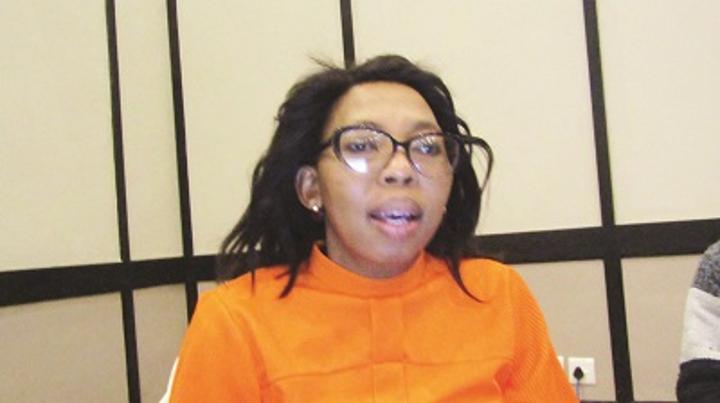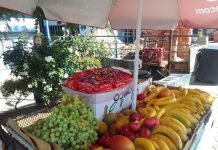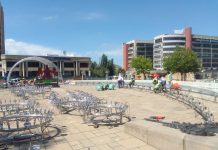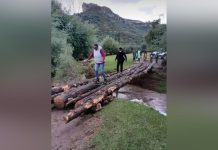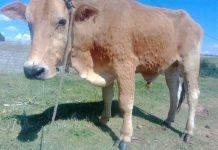Africa-Press – Lesotho. Lesotho is said to lack in finances and laws guiding environment and sanitation programs hence infrastructures implemented are not completed as anticipated.
This was said by Lesotho Water Partnership (LWP) National Vocal Person ‘Mahlalele Setlhako at the survey workshop for stakeholders’ engagement for Lesotho’s 2020
water report. In order to accelerate the progress towards achievement of water related Sustainable Development Goals (SDGs) and other development goals, the United Nations Environment Programme (UNEP) and the Global Water Partnership (GWP) formulated the SDG 6 of Integrated Water Resources Management (IWRM) programme,
for which United Nations UN member states are to gather and deliver their progress report. Lesotho together with other member states adopted the 2030 Agenda for SDGs in 2015
where among the 17 SDGs, SDG 6 focuses on the availability and management of water and sanitation resources for all. It aims at assisting governments in developing
and executing country led responses to SDG indicator 6.5.1 degree of IWRM implementation. This is aimed at ensuring measurable progress on relevant SDGs targets and supporting the official SDGs monitoring and reporting processes in different countries. Speaking at the workshop, LWP Chairperson Levi Ntekoa explained that the main objective
of the SDG 6.5.1 survey is to develop a country report on the degree of IWRM implementation in Lesotho as per requirements of the UNEP SDGs programme.
Ntekoa added that the specific objective is to undertake the inclusive multi-stakeholder-based survey workshop and produce a report on the degree of IWRM implementation (SDGs target 6.5.1) in Lesotho for 2020.
To highlight how the engagement of stakeholders was undertaken for SDG 6.5.1 survey reporting exercise through stakeholder engagement report, “GWP in collaboration with other partners have been engaged to facilitate and coordinate the reporting of SDG 6.5.1,” he said. Ntekoa further mentioned that the LWP is a member of GWP and has been delegated to
facilitate this process in the country. He said the LWP is the forum that brings together stakeholders from different sectors to plan and manage water resources in the country. “We are gathered here today as different stakeholders to be part of the IWRM reporting process as it is acknowledged that water is
important for ecosystem, vital to health and well-being and a precursor for economic development,” he said. He noted that participation and contribution of different stakeholders will
improve the country’s reporting and assist in the planning and implementation of different programmes and initiatives that need multi-stakeholders’ engagement.
Setlhako said after every three years, every member state is expected to provide a progress report to the UN, which shows how it has been working and if there are any improvements or
not, and the last time this report was made was in 2017. She said they invited different stakeholders to share their views on the protection and improvement of sanitation and environment in the country and those views will be included in the IWRM report. “Among the stakeholders we have invited are Ministries, Chiefs, community
councilors and other community leaders who oversee the protection and improvement of sanitation and environment in their villages,” she said. Setlhako
further added that the in the 2017 IWRM report Lesotho appeared at a very low stage on protection and improvement of environment and sanitation. She said this is due to failure to implement set goals and lack of laws to guide progress of these goals. She emphasized that after the report, every country is
expected to go back and work hard on making improvements in protecting sanitation and environment. Also present at the workshop was Survivors of Lesotho Dams (SOLD) National Coordinator
Lenka Thamae who emphasized the importance of the workshop to them as stakeholders. He said protection of the environment means the wetlands will also be protected and therefore Lesotho will not run out of water. He further noted that workshops like this need to be hosted for communities too, to sensitize them on the importance of protecting the environment.
For More News And Analysis About Lesotho Follow Africa-Press

